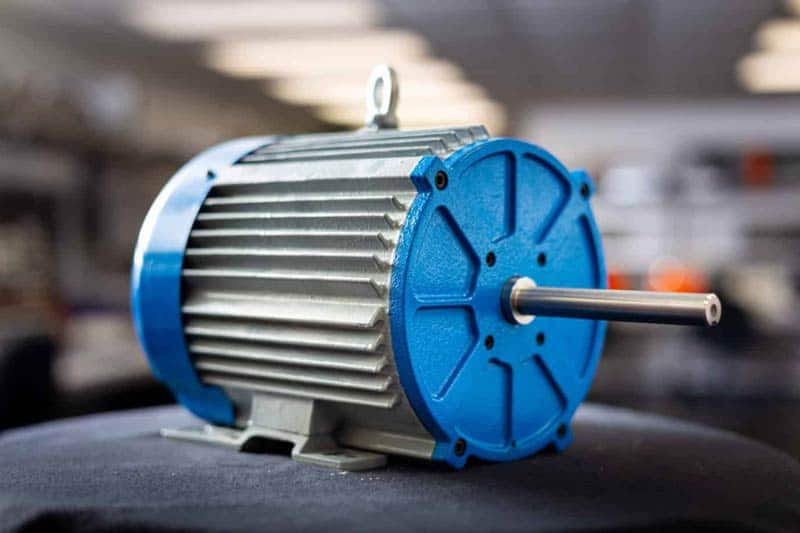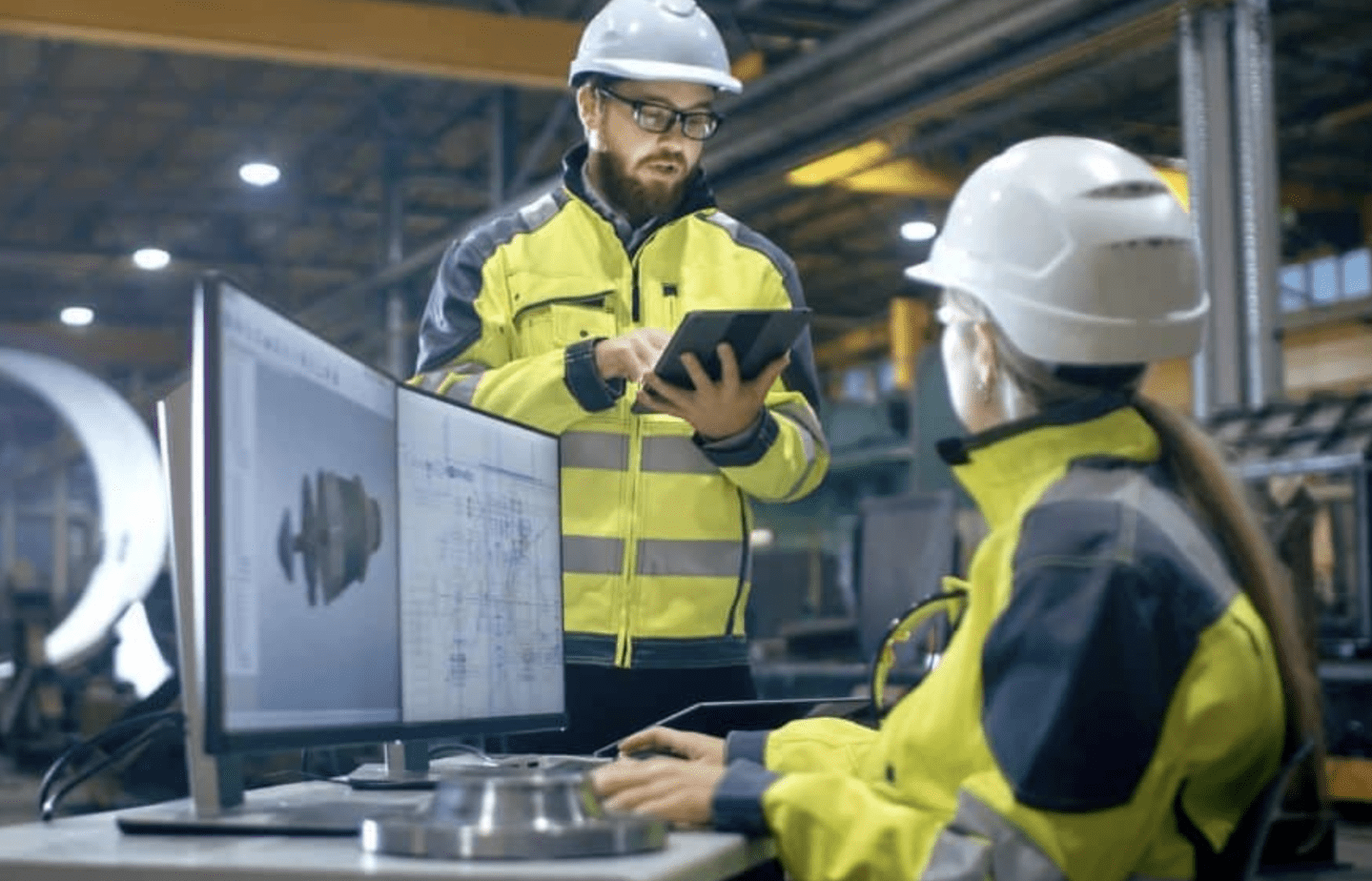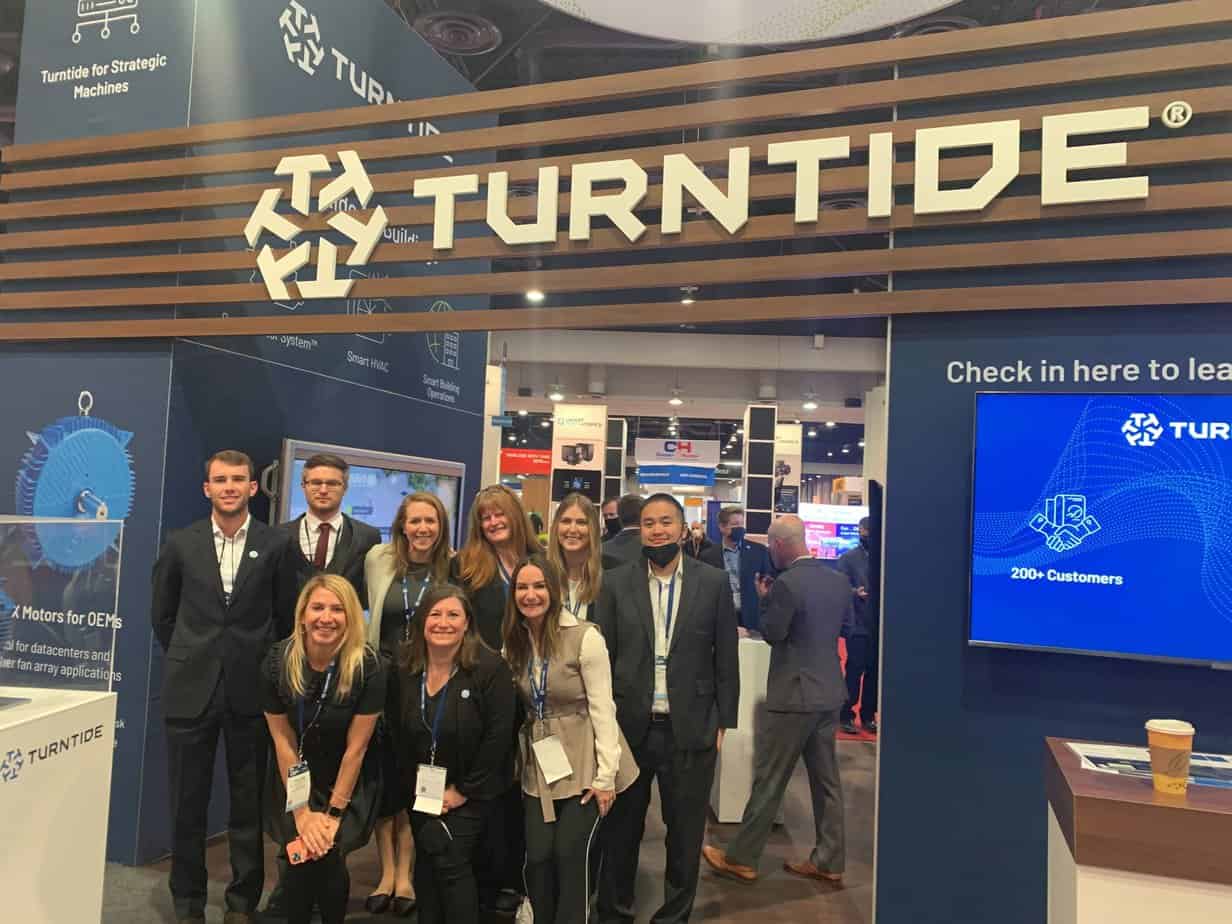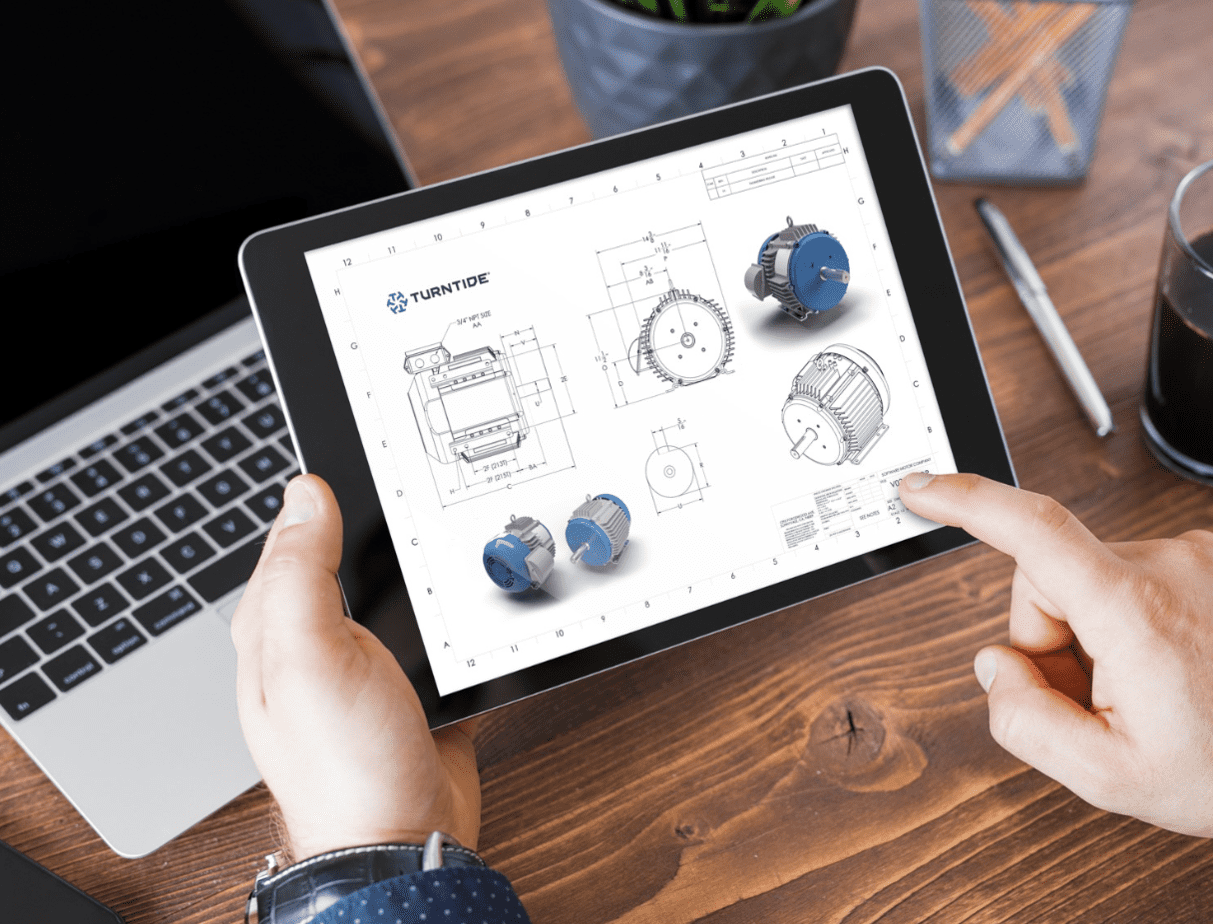Matt Boyle
Episode Summary
While the narrative around vehicle electrification usually focuses on passenger cars and light-duty trucks, commercial and industrial transport actually make up 55% of the sector’s global carbon emissions. We have the technology today to significantly reduce that contribution.
Construction and agriculture equipment. Last-mile delivery vehicles. Freight and mass transit. Marine and aerospace. These commercial and industrial vehicles, long powered by combustion engines, have viable electric alternatives that provide the same power with higher efficiency and better control.
According to Matt Boyle, Professor of Practice in Engineering at Newcastle University, smart government policy is the key to unlocking their potential and encouraging their widescale adoption.
“I’m helping companies and governments address the needs in a pincer movement. One of the things you find is that government is an enabler, but not a doer. Industry does, governments enable. We need to pull both levers to solve this problem.”
In this episode of Net Zero Action Heroes, Matt discusses recent advancements in electrification technology, the roles of government and business in building a more sustainable planet, and how recent policies are accelerating vehicle electrification.

Matt Boyle, OBE
Adviser to UK Government, Former Automotive CEO, and Professor of Practice
Matt Boyle, OBE, is a global leader in vehicle electrification, based out of the UK’s North East, who was recently named to Prime Minister Boris Johnson’s Business Council. He currently teaches at Newcastle University, is a consultant for Turntide Electrification, and is Chair of the North East Automotive Alliance — to name just a few of his positions and affiliations. Previously, he spent more than 30 years working for several engineering companies, most recently as CEO of Sevcon, which was acquired by Borg Warner in 2017.
Key Insights
Electric vehicles have surpassed their combustion-powered counterparts. While vehicle electrification often centers on passenger cars and light duty trucks, commercial and industrial transport actually make up 55% of the global emissions for the transport sector. According to Matt, we have the technology today to significantly reduce that number. Not only that, but many of today’s electric vehicles far outperform their combustion-powered alternatives. “I’ll let you in a little secret. Not only is it more cost-effective to run an electric vehicle today, but the performance is better. I am often surrounded by people you might describe as petrolheads. They love Ferraris. They love McLarens. They love Aston Martins. But you put any of those on a racetrack, and an electric vehicle will beat them hands down.”
Government and business both have a role to play in building a sustainable future. Before joining Prime Minister Boris Johnson’s Business Council, Matt worked for several engineering companies over three decades, most recently as CEO of Sevcon, which was acquired by Borg Warner in 2017. He believes that both business and government have roles to play in humanity’s fight against climate change. “I’m helping companies and governments address the needs in a pincer movement. One of the things you find is that government is an enabler, but not a doer. Industry does, governments enable. We need to pull both levers to solve this problem.”
Governments are incentivizing businesses to adopt and develop electrification solutions. Governments around the world are beginning to leverage sustainability investment as a driver for economic growth. According to Matt, the Levelling Up initiative is one such example in the UK. “It’s designed to give places the same level of opportunity as you would have in, say, Southern England. So somebody in Glasgow has the same opportunity to exceed and excel as somebody living in London. There are many levers; financial is one of them, but there are others, including planning laws and access to education and health. There are many facets to it, but Levelling Up ultimately is — you get the same opportunity in one location as another.”
Episode Highlights
[03:55] “The internal combustion engine was developed over about 150 years. We don’t have that kind of time. We have got to solve this problem far faster than that. And that means that we have to address it from multiple angles.”
[10:00] “The cost of an electric vehicle is still higher today than its internal combustion equivalent. But that’s coming down, and governments are helping to leverage that by incentivizing the adoption of sustainable technologies.”
[16:30] “There isn’t a silver bullet in this. It will take a range of technologies and a range of applications to solve [climate change]. You cannot power everything with a battery, and you cannot power everything with a hydrogen fuel cell. … But over the course of the next 10 years, those two technologies will substantially improve our ability to operate electric vehicles.”
Transcript
[00:00:10] Chris Pullam: Hello, and welcome to Net Zero Action Heroes. I’m Chris Pullam, and this episode is brought to you by Turntide Technologies, an award-winning sustainability company. Today, our guest is Matt Boyle, OB, OBE, sorry. I’m going to do that again for the recording. Today, our guest is Matt Boyle, OBE, a leader in vehicle electrification affiliated with multiple UK organizations.
[00:00:35] Just to name a few, he’s a Consultant for Turntide electrification, he’s Chairman of the North East Automotive Alliance. Teaches at Newcastle University and was recently named to Prime Minister Boris Johnson’s Business Counsel. Matt, thanks for joining me today on Net Zero Action Heroes.
[00:0:42] Matt Boyle: Thanks, Chris. I’m just warming up, listening to all.
[00:00:46] Chris Pullam: And that’s a very truncated version of your resume. You’re affiliated with so many things. But before we dive into those specific roles that you have, I was hoping you could start by sharing your motivation for advancing sustainable technologies in your career. Why did you do it?
[00:01:00] Matt Boyle: Well, it’s really quite straightforward. It comes down to two words, climate change. Without these technologies, there is no chance of the world addressing the issues of climate change. We’re too dependent on fossil fuels and too dependent on our lifestyle, and you can’t square taking carbon out of the supply chain with continuing the lifestyle you’ve got.
[00:01:25] So, you gotta use technology to help bridge that gap.
[00:01:32] Chris Pullam: I mean, with that being said, would you mind walking us through some highlights from your career and maybe a few of your current roles?
[00:01:40] Matt Boyle: I used to run a company called Sevcon, which was at the forefront of electric vehicle and drivetrain development, so the thing that stopped between the power source, which is normally a battery, and the electric motor. I led the company for 21 years before we sold it to, um, BorgWarner of the United States. And I became a kind of probably semi-retired person for, I would say, about 30 seconds. And then, a number of people approached me to try and help the UK address the problems of climate change and the lack of manufacturing capability in those technologies in the UK.
[00:02:15] So, I stopped being the president of a US public company and joined the staff of the UK government. I could only do that for a year, really, because it was a very fine job, but also I wanted to go on and get some stuff done.
[00:02:25] I’m now looking specifically at who we address the issues of climate change by making technologies, developing and making technologies that address that whole I was talking about in the drivetrain between carbon and non-carbon sustainable technologies.
[00:02:45] Chris Pullam: Yeah. So, there are so many different directions I would love to go with that answer. I guess my first direction would be, I mean, you’re involved in so many different things, as you just mentioned. Why do we have to attack this problem from so many different directions to make any headway?
[00:03:00] Matt Boyle: So, the internal combustion engine was developed over about 150 years. Constant development to get it to where it was at Euro 6. We don’t have that time. We have got to solve a problem in far faster timescale than that. And that means that we have to address the problem from multiple angles in order to be successful in replacing carbon.
[00:03:20] And the UK government today published an energy policy, which talks about hydrogen, it talks about nuclear, talks about wind, it talks about solar, it talks about coupons. All of those solutions are underpinned by power electronics, machines and drives, which for the machines and drivetrains was all about what I did for a living for the last 30 years.
[00:03:45] So, I’m helping companies and governments address the needs in a kinda pincer movement. Solve the problem of bridging the gap, but also solving the problem of developing supply chains because we need lots of this stuff now. We don’t have 150 years to develop this stuff.
[00:04:00] We have to be manufacturing the parts and the solutions in far, far quicker order.
[00:04:10] Chris Pullam: Yeah. I mean, it seems like the government and businesses can really help each other if they’re in sync and if they’re working together as opposed to being in silos. So, I think it’s great that you’re converging both of those aspects into one solution because, like you said, we don’t have much time to solve this. So, we need to be doing this efficiently as possible.
[00:04:20] Matt Boyle: Yeah, that’s exactly right, Chris. One of the things you find is government is an enabler but not a doer. Industry does, governments enable. And that’s the way that’s the correct levers to pull when you’re dealing with both. I went to COP26 back in November last year, and it was fascinating to hear people talking about this stuff now with a sense of urgency. And I hadn’t experienced that before, but it was very hugely satisfying.
[00:05:00] Chris Pullam: So have you noticed anything that’s changed over the time since you’ve into sustainability tech to now?
[00:05:10] Matt Boyle: I think three things. So let me talk about talent first. When I started an engineering, my cohort of graduating class people were almost all male. That has now changed. And that is for the good. Encouraging the entire paniopia of humanity to get involved in engineering has been one of my challenges over my career. There are places for everyone.
[00:05:38] And over the last several years, I would say probably the last 5 to 10 years, I’ve seen a greater influx of women and girls into the science subjects and following it through to end, to graduate engineering jobs and even technician jobs. I wouldn’t say “even,” they are just as valuable.
[00:05:55] So, that’s the first thing. The second thing is a wake-up call for the entire world, really, of how much damage we have done and how much damage we are doing to our climate. And that is not something that was talked about as much when I started off. In fact, it wasn’t discussed at all. But certainly in the last five or so years, especially with COVID that helped, as well, because it allowed people to focus for a while.
[00:06:25] And it highlighted some of the challenges at COP26, highlighted some of the challenges that we still have. But that dialogue has started. And I strongly believe that boardrooms are more influenced by their customers than people think. Because investors want the board to be interested in the customer, and the management want the board to have interest in the customer.
[00:06:55] And that is one of the reasons why turning up the COP26 as a business has been hugely important. And some of the commitments made there were made by businesses as well as governments.
[00:07:00] Matt Boyle: I’ll let you in a little secret. So not only is it more cost-effective to run an electric vehicle today, but the performance is better. So I am surrounded at times by people you describe as petrolheads. And they love the Ferraris, they love the McLarens, they love Aston Martins, but you put them on a racetrack and the electric vehicle beats them hands down. It’s because the performance is better.
[00:07:30] Chris Pullam: So then, what role will electrification of vehicles play in these efforts to decarbonize the planet?
[00:07:35] Matt Boyle: So 28% of the greenhouse gas emissions of the planet are transport. It is hugely important, hugely important, that we get that tackled because, without it, everything else is actually very, very difficult to achieve. And when somebody points to me and says, “What are you going to, what are you doing that’s different, Matt?” I say, “Well, I’ve got problem in front of me, and I’ve got the solution.
[00:08:00] Why wouldn’t I apply the solution to the problem? So, get out of my way, let me apply the solution, and let’s get that 20 to 28% down.” And to a large extent, I would say, Chris, that people that are actually listening to that argument, though, there are still some naysayers, but there are very few in the very marginalized now. There are other challenges, as well, because automotive isn’t the only piece of transport there needs to be electrified.
[00:08:28] You know, aerospace needs to be electrified, and that’s not a simple nut to crack. As well as marine and rail I have mentioned earlier. The other thing that people kind of intuitively don’t think about when they talk about automotive is the number of commercial vehicles on the road, not just passenger vehicles, like buses, trucks, and all of that, that we are capable of electrifying today.
[00:08:50] The power source, however, is a bit of a challenge because you don’t really want a 40-foot or 60-foot trailer to be full of batteries because that’s the only way you’re going to power the vehicle for the range it needs. But, you could do hydrogen, for example.
[00:09:08] And there are lots of experimental vehicles out there at the moment looking at hydrogen for commercial vehicles. And that hydrogen also has a part to play in things like marine and aerospace, where the requirement for energy is actually quite substantial over the operating life of a vehicle.
[00:09:25] When you talk about rail, that’s a little bit different because, obviously, electrification of rail has been around for quite a while. Really it needs more generating infrastructure and more transmission infrastructure because the consumption options are already there.
[00:09:38] There are enough designs of electric trains around that you don’t need to worry about the consumption of it. You just need to worry about the generation and the distribution of the energy around that one.
[00:09:50] Chris Pullam: So, I mean, along the same lines of rail and marine and aerospace being included in transportation, there’s still commercial and industrial vehicles. Do those two sources contribute significantly to climate change in terms of all vehicle emissions?
[00:10:05] Matt Boyle: Yeah, they do, especially commercial vehicles. So let me talk about commercial vehicles and trucking first of all. About 25% of total emissions comes down to large freight being moved long distances. These are automotive, and the last mile logistics is horrendous.
[00:10:28] It’s like 30%. You look at the last mile logistics, and you think, “Why is that still carbon?” Because by definition, the vehicles aren’t going very far, you know? Last mile logistics would imply that they’re only going one mile. They tend to be lighter than the larger trucks, so it’s easier to power them and give them an appropriately sized drivetrain.
[00:10:43] And the third thing is infrastructure, because last mile logistics operates from a distribution warehouse or location to its ultimate customers. And around those, there’s enormous ability to charge, to recharge, and there’s all the infrastructure to support that.
[00:11:05] So the last mile logistics, I think, is one of the places where there’s been a lot of attention really recently. And one of my hats is chairman of a 5G commercial automotive logistics, a connected automated logistics project, which is looking at last mile logistics on public highways.
[00:11:27] And there are some challenges there, obviously, regulation not being the only one. But those smaller trucks can definitely be electrified today.
[00:11:35] Chris Pullam: What would be the argument for the companies from a bottom-line perspective to actually make this sort of transition?
[00:11:45] Matt Boyle:Going back to my point about last mile logistics, when you talk about FedEx and UPS and, to a large extent, Amazon, that is one of the things they are very good at, last mile logistics. And they’ll look at these technologies now, looking to implement them in order to offset their future climate impact. So it’s not as black and white as saying, “All of these people are now interested in the climate all of a sudden,” but it is looking at the effect of the climate and the cost of running them.
[00:12:21] Chris Pullam: The technology that powers these last mile vehicles, electric vehicles, is really fascinating. I’ve read about regenerative braking that adds more electricity and more power to the vehicles as they’re driving, as they’re going and stopping at stoplights, stop signs, pick up and drop off locations.
[00:12:35] Is there any other interesting technology going into these vehicles that have kind of enabled their wide-scale use?
[00:12:40] Matt Boyle: So, a couple of things. One thing, in particular, is direct drive. So instead of having an electric motor and a gearbox to drive a prop shaft. In other words, all the person designing the drivetrain has done is taken the internal combustion engine and put an electrical system in.
[00:13:00] If you can configure it so that you don’t need the gearbox and you can do direct drive, then that again improves performance because you don’t have some of the losses in the gearbox. You go direct drive, the overall efficiency of the system improves. The second thing I would draw your attention to is fuel cells.
[00:13:20] When I first started at Sevcon 27 years ago, fuel cells were still10 years away. That’s what I was taught, they’re 10 years away. That was nearly 30 years ago, and they’re still not there yet, but they’re improving.
[00:13:36] And one of the things that has certainly helped people understand the possibilities has been examples of where fuel cells have been implemented in commercial vehicles. Trucks and buses being the two best examples. And one thing I would stress to anybody watching this and anybody listening to me is there isn’t a silver bullet in this.
[00:14:00] It will take a range of technologies applied in a range of applications to solve the problem. You cannot power everything with a battery, and you cannot power everything with a hydrogen fuel cell. So, there are horses for courses as they say.
[00:14:20] I think over the course of the next 10 years, I think those two technologies will substantially improve the ability to operate electric vehicles. The interesting one for me is aerospace. There’s a great deal of what going on at the moment in green fuels, alternative fuels, to cut carbon that has some government support.
[00:14:50] And I think biofuels is potentially a solution to some of these things, but hydrogen may also play a part, and definitely batteries will have role because they already do. So, as I said earlier, there’s no silver bullet in this. And I see three technologies or four technologies being around for quite some time yet.
[00:15:10] Chris Pullam: We’ve spent a lot of time talking about this issue from an engineering perspective. We talked a lot about the end-user perspective with UPS, Amazon, and other companies. What are the business benefits for vehicle manufacturers to accelerate their electrification efforts?
[00:15:25] Matt Boyle: As you look at OEMs, they are influenced by the customer, hugely influenced by the customer. So you have seen over the last 10 years the fantastic advances in the man-machine interface in all the bells and whistles in cars. You know, EBS and all that, these things. But now they’re faced with a different challenge. My son is 26 and has declared he will never own a vehicle. He wants to hire it, wants to rent it on a day-to-day basis. This will require a different business model. My daughter, who does want to own a vehicle, doesn’t want to own an internal combustion vehicle.
[00:15:55] And that’s the first generation, in my opinion, that has had that view of vehicle ownership. This all created an enormous amount of change in automotive over the last two or three years and a lot more to come.
[00:16:15] Chris Pullam: On the political level, has the UK government been a good partner for you over there?
[00:16:35] Matt Boyle: Yes. Couple of ways in which that’s been the case, very clear guidelines, very clear limits. Don’t be wishy-washy about this stuff. There will be no more new internal combustion vehicles after 2030, there’s a deadline. It’s hard. Well-described, no ambiguity. So that’s the first thing.
[00:16:55] The second thing is the British government, as does the American government, understands that electrification is something that you didn’t even think of three or four years ago. So you have to move quickly, and the UK government has been really helpful.
[00:17:20] Chris Pullam: I’d love to dive into some of the things that UK government is doing, that you also are doing through the UK government. One of them being the Levelling Up initiative.
[00:17:45] Matt Boyle: Right. So I think about this slightly differently from the media, and I think I’m right in saying this, no doubt they’ll tell me I’m wrong at some point, but Levelling Up is about the level of opportunity. So, in the UK, as there are in many societies across the globe, there are low-achieving parts of society that are geographically spread.
[00:18:05] And what Levelling Up is designed to do is to give those places the same level of opportunity as you would have in, say, Southern England. So somebody in Glasgow has the same opportunity to succeed and excel as somebody living in London. That’s what Levelling Up is supposed to do. Now, there are many, many levers to pull in Levelling Up. Financial is one of them, but there are others, including planning laws, including access to education, including access to health.
[00:18:40] Chris Pullam: A lot of the organizations that you are affiliated with are based in the North East.
[00:18:48] There’s obviously a lot of activity over there. Turntide published a blog post a few weeks ago talking about all the reasons that the North East is one of the most exciting tech hubs in the UK. But you’re the expert. What advantages does the Northeast have when it comes to vehicle electrification?
[00:19:05] Matt Boyle: So one word: capability. I’ve preached for many decades, now, that there are three places in the world to do electrification, only three: Northern Italy: the Northeast of the United States, not the West Coast, but the Northeastern United States; and the Northeast of the UK. And partly that’s down to history.
[00:19:32] History in Northern Italy is after the Second World War, the rebuilding of Europe incentivized places like Italy to get hold of something it’s quite good at and try and build it. And there are a number of household names in electrification, and electrical supply and machines, especially in Northern Italy, that have over the years done two things.
[00:19:55] One, the goal is businesses, but they’ve created an environment around them and an ecology around them that supports their own growth. And that is where investment has gone for those technologies. So, as we go on through the Cinderella stage in all three locations, they’ve all benefited from the fact that they have capability.
[00:20:15] The other thing you have to do, though, Chris, is you have to bring investment, and you have to make it very friendly for that investment, make it easy for people to come here and exploit the capability. One of the things, to go back to your point about the British government, that British government has done is it’s made it easy to do business successfully in the UK.
[00:20:40] So, thirdly, specifically about the North East of England, is we’ve seen over the past two years huge investments in both natural capability, because there’ve been some sites in the UK, in the North East of England, that have lent themselves very handily to becoming big battery plants.
[00:21:14] And we’ve now got three gigafactories. Now, the gigafactory is a factory that produces more than a gigawatt of batteries in a year. We already have one. We have Europe’s first; that’s in Washington. We’re adding to that one. And that’s 418-million-pound investment followed a previous 1.2 billion investment. And so it will be 1.6 billion pounds of investment.
[00:21:41] They’ve come here for two things. One, the capability in the region, very high-tech, infrastructure and ecology. And secondly, huge natural resources, both in its ability to generate the power required for the gigafactories and to have the talent around that can staff them.
[00:22:02] And those really are the two reasons why the Northeast has benefited from investments that have been going on for the best part of 40 years.
[00:22:14] Chris Pullam: So are there any specific programs or initiatives that could have encouraged this, whether it’s in the UK or in the Nort East specifically?
[00:22:21] Matt Boyle: So the North East Automotive Alliance is an alliance of the supply chains and the OEMs, the original equipment manufacturer. So Nissan is a big member. What it does is it supports the supply chain for the car plants. There are 300 businesses inside the alliance.
[00:22:40] It has all of its Tier 1 OEMs, all of its Tier 2s, most of its Tier 3s. And what you then find is that your people are a little bit nervous and talking about the business in open forum and what the Alliance does is without the need to divulge anything, you can discuss your challenges. You can discuss problems you have, you can discuss where technology is going and so on and so forth in an environment that’s benign.
[00:22:59] You know, it’s “everybody leaves their ideas and their prejudice at the main gate.” And it really came into focus actually how good this alliance was during COVID. Because, as you may imagine, the lockdowns across the world firstly affected supply chains for all of these businesses, and they all shared best practices.
[00:23:16] We chaired a daily meeting at one point to discuss best practices for dealing with COVID in the workplace. You know, mitigations, strategies, some of the cleanup technologies, some of the HR issues, our own testing and so on and so forth. And that’s what the Alliance was all about.
[00:23:29] It’s about sharing ideas and helping each other solve problems.
[00:23:34] Chris Pullam: Yeah, that sounds like a great approach. I think it’s easy to imagine that a lot of these businesses would just be competing with each other and not kind of want to share any of the secrets or their solutions they come up with. But I can also see the alternative where tackling these solutions together could benefit everybody involved.
[00:23:55] Well, I’ve kept you for a while. So I only have one more specific question for you. What makes you hopeful for the future?
[00:24:02] Matt Boyle: I think it is a bit more complex for me, but what I feel confident about is that the kids coming through now doing engineering, wanting to follow a path in science and technology, they’revhugely inspiring. I mean, it may have been that being in that cohort, you know, the best part of 40 years ago, I didn’t see it in any of my peers, but today I’ll look into the schools, the colleges and universities, and I’m hugely encouraged by the potential of the people who are coming through in these subjects now. And at last, at last, we are seeing decarbonization as being an imperative. That is enormously satisfying to me.
[00:24:46] Chris Pullam: Yeah, that’s really heartening. So before I let you go, where can people go to learn more about you or any of these organizations you mentioned?
[00:25:00] Matt Boyle: Well, I’m on LinkedIn, as is everybody. I’m also, as I already said, a professor of practice at Newcastle. I’m sure Newcastle will have a picture of me on a dartboard somewhere, but the easiest way to get to me is through LinkedIn.
[00:25:14] Chris Pullam: Awesome. So, well, Matt, thanks again for everything you’re doing to make the world more sustainable. You’ve been a fantastic addition. That’s your reaction here as I really, it was a pleasure getting to know you and everything that you’re doing over there in the UK.
[00:25:21] Matt Boyle: Thanks very much, Chris. You have a better afternoon.
[00:25:24] Chris Pullam: It won’t get better from here. Thank you.






